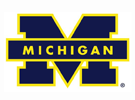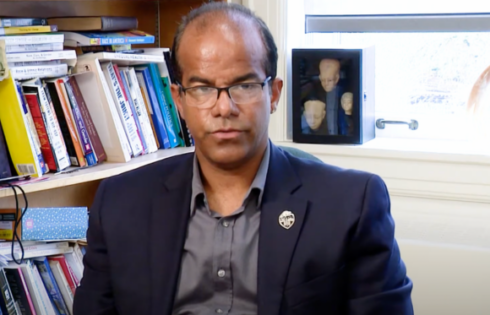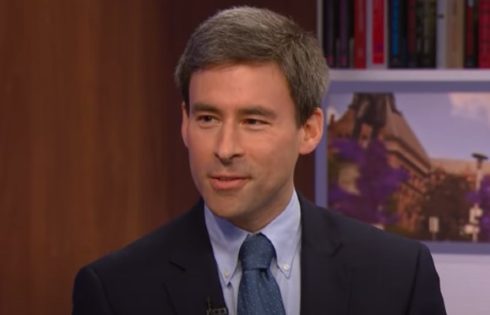
 The lawsuit against the University of Michigan and four other schools for their digital orphaned books project is growing — but Michigan is still digitizing works.
The lawsuit against the University of Michigan and four other schools for their digital orphaned books project is growing — but Michigan is still digitizing works.
Thursday, the Authors’ Guild amended their lawsuit against the five universities to include addition authors and authors groups, including several international publishing groups and four individual authors. The universities named as defendants in addition to Michigan are the University of California, the University of Wisconsin, Indiana University, and Cornell University. The suit seeks to bar the libraries from digitizing copyrighted works, providing works to Google, and to stop the project’s plan to release and allow access to orphan works.
On Sept. 16, Michigan suspended its release of 140 orphan works indefinitely, citing concerns about the process for finding copyright holders. But the digitization project is still in operation. Dean of Libraries at Michigan Paul Courant told the Michigan Rector, a university publication, that the digitization efforts have continued, despite reports to the contrary.
“We have not changed our plans or activities in any way as a result of the Authors Guild lawsuit,” Courant said.
The lawsuit came as a surprise to Michigan, as they had previously been in talks with the Authors’ Guild, hoping to enlist their help in finding copyright holders for the Orphan Works.
“Rather than sue us, the Author’s Guild should help us to do the job as well as possible,” Courant said.
The Authors’ Guild source of complaint is the process the universities are using to identify copyright holders; after a search for copyright holders, the project publishes a list for 90 days with authors to determine if a work is orphaned. Michigan said that after a certain amount of time, the digital versions of the book would be put up for use by students, since finding every last copyright holder from these books (published 1923-63) is impractical. The Guild takes issue with this; Angelo Loukakis, executive director of the Australian Society of Authors said that the university has no right “to decide whether, when or how authors forfeit their copyright protection.”
Leaving aside the rigor of Michigan’s copyright search, the legality of the project is still a matter of contention.
“There is literally no way to seek permission from a copyright owner that you cannot identify or cannot find,” said Jessica Litman, a University of Michigan professor of law, “so the approach the university is taking seems pretty reasonable.” She added, however, that it is difficult to know how a court will see it.
The university admits, in a public statement about the lawsuit, that an examination of their process for determining orphaned works has “revealed a number of errors, some of them serious.” The Guild has reached or identified a number of authors which the university considered unreachable.
Copyright law in the digital age is in an odd place.
“Congress enacted the current copyright statute in 1976, before networked digital technology,” Litman said. “Authors, copyright owners, libraries and readers have to figure out how a 35 year old statute applies to current technology; everyone is guessing.”
Arguments have been coming in from all over the map in recent years, with even prominent authors such as Jonathan Lethem, Mark Helprin, and David Shields lending their opinions, ranging from the effective dismissal of all copyrights, to harder laws and stricter enforcement.
Those on the anti-copyright side, like Lethem and Shields, point to the increase in creativity that would be allowed if authors were allowed to freely use and build on other writers’ works without being termed plagiarists. The ease with which digital technology allows writers to distribute their work would mean that any writer would have a huge body of modern work to draw from, and be inspired by, without fear of legal action, supposedly leading to a great digital leap forward in the arts.
On the other side of the debate, those in agreement with Helprin’s views—as layed out in Digital Barbarism—say that if we cease to give authors full control over their work, they won’t be able to make a living from it and will stop turning out work altogether, essentially leading to a dark age for the arts. In the age of digital copies and pirating, the argument goes that full authorial control would be useless without stricter enforcement, which is exactly what the Authors’ Guild is lobbying for. Their complaint against Michigan cites worries about the security of the digitized books, though Michigan hastens to remind the public in their statement that nothing they have done has “resulted in the exposure of even one page of in-copyright material.”
“Digital technologies have caused considerable strain for the copyright regime, and vice versa,” Courant said.
Trent Hansen is a staff writer for the Michigan Review. He is a contributor to The College Fix.
Like The College Fix on Facebook / Follow us on Twitter





Please join the conversation about our stories on Facebook, Twitter, Instagram, Reddit, MeWe, Rumble, Gab, Minds and Gettr.